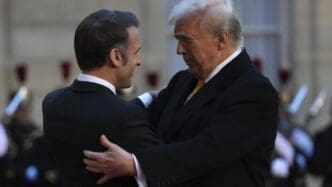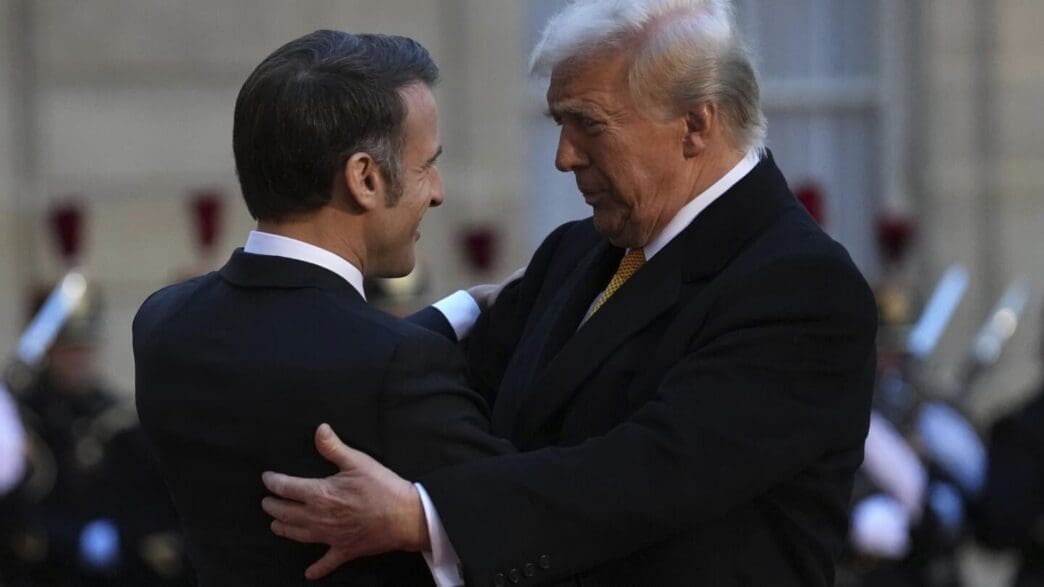With still over a month to go before taking the oath for his second term, President-elect Donald Trump is not waiting to make his presence felt on the global stage.
In an unprecedented move, Trump is already setting policy goals and attempting to achieve them even before officially returning to office. He’s been engaging with world leaders in rapid fashion, including a notable sit-down with French President Emmanuel Macron and Ukraine’s President Volodymyr Zelenskyy at the Elysee Palace. Furthermore, Trump has issued stern warnings to Hamas, demanding the release of hostages in Gaza before his January 20, 2025, inauguration date.
Canadian Prime Minister Justin Trudeau recently found himself at Trump’s Mar-a-Lago estate as a direct response to Trump’s threatening 25% tariff talk on Canadian and Mexican goods. Meanwhile, Trump’s negotiations seem to have influenced Mexico’s recent massive drug seizures, which Mexico attributes to their own initiatives, though Trump claims otherwise. “Promises Kept — And President Trump Hasn’t Even Been Inaugurated Yet,” reads a statement from Trump’s team, highlighting his impactful pre-inaugural diplomacy.
However, these bold actions raise questions about whether Trump’s aggressive transition will prove effective or create diplomatic challenges. Experts like Julian Zelizer from Princeton point out the quirky nature of Trump’s approach to the transition, noting that Trump continues to govern through these international dialogues despite not being the sitting president. Often meeting with foreign officials, discussing trade policies, and emphasizing drug trafficking issues, Trump’s actions blur the traditional lines of authority during the transition period.
Trump’s aides are actively engaging future foreign counterparts to lay a foundation for upcoming policies. For example, incoming national security adviser Mike Waltz connected with Ukrainian officials to bolster defense strategies, while Trump’s Middle East envoy engaged in discussions regarding Gaza’s truce and hostage situations. These proactive meetings are customary unless they influence current policies significantly, a mindful reminder from Trump’s past association with Russian officials during his previous transition period.
The crossroads between outgoing President Biden’s policies and Trump’s incoming administration seem to be creating unique scenarios. Trump’s team is being careful to avoid conflicts, especially regarding sensitive issues like the Middle East peace processes. Coordinating closely, individuals like Waltz and Biden’s national security adviser, Jake Sullivan, have ensured communication lines remain open. This collaborative approach is deemed crucial given the geopolitical tensions involving Ukraine, the Middle East, and China’s emerging influence.
Trump’s unyielding style of leadership is already making waves in financial markets, with influencers ranging from stock values to retail corporate policies reflecting Trump-favored principles. With credit claims flying between Trump and Biden for various achievements, the dynamics of this upcoming administration are clear: strategy and power play are at the forefront.
In light of Trump’s commitments, foreign leaders are finding ways to align themselves with his ambitions. Yet, it remains to be seen how former allies or adversaries will navigate this transitional diplomacy. Mexico’s president, while openly clarifying potential miscommunications with Trump, demonstrates the delicate balance and necessary clearance in these transnational conversations.
As Trump prepares for his official return, his assertive approach has already set the tone for his upcoming tenure. Whether this will result in notable diplomatic successes or challenges remains a topic of speculation, though it’s certain that Trump’s distinctive style will continue shaping political landscapes.
Source: Apnews








